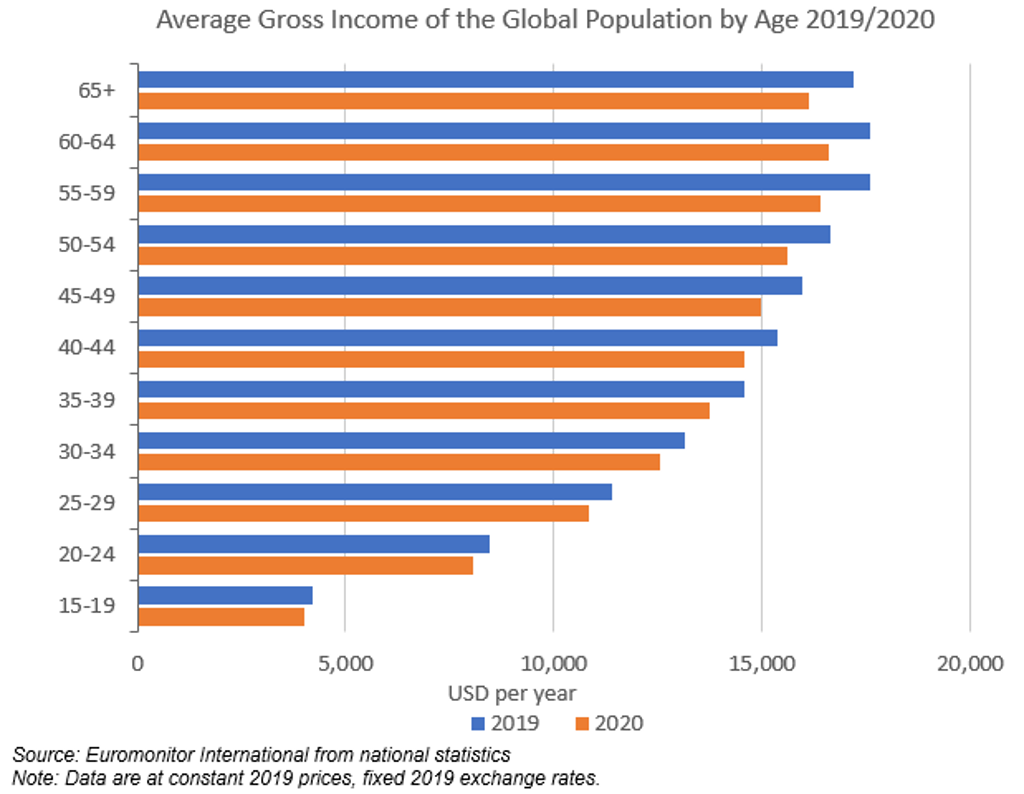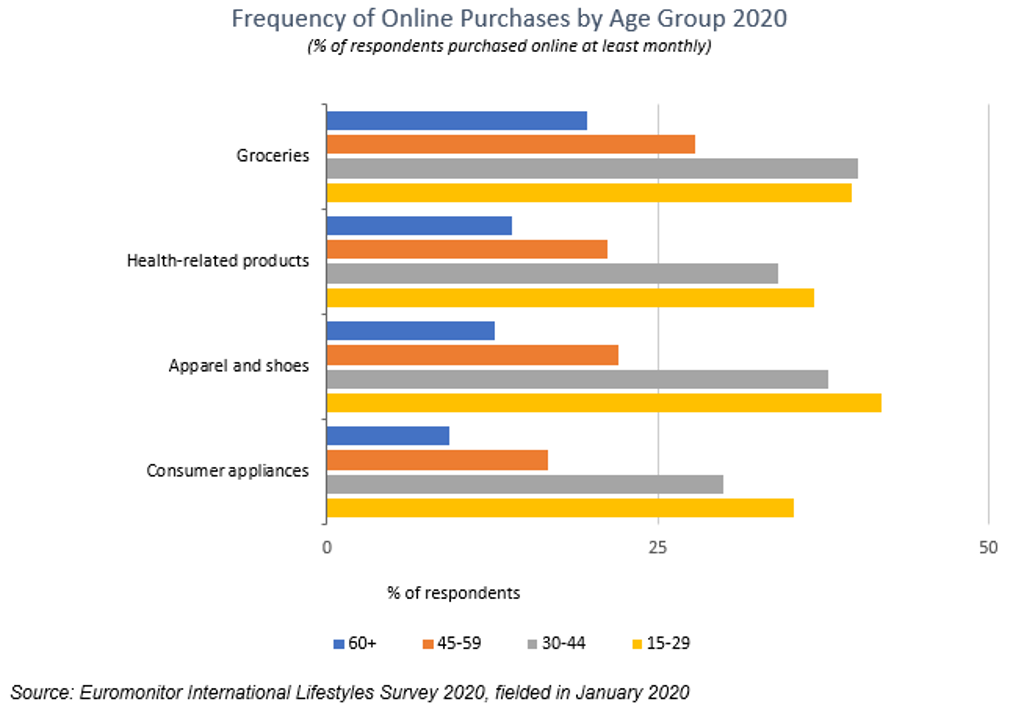The Coronavirus (COVID-19) pandemic has hit older generations the hardest, raising global awareness that we are living in an ageing world. It also underlines the need for countries and businesses to adapt to population ageing, as economies have seen the growing pressure on healthcare and pension systems, while businesses face the challenge of serving this increasingly important consumer segment during and beyond the crisis.
The pandemic hits older people’s health and wellbeing
Older people represent the group most vulnerable to COVID-19, with underlying age-related health issues, such as hypertension and diabetes, being risk factors that can lead to complications in the case of infection. Furthermore, social distancing measures and lockdowns can affect older persons’ mental wellbeing, since many of them live alone and are less digitally connected than younger consumers. There is a significant digital divide among the older demographic who are, therefore, likely to be marginalised by any strong transition towards online shopping, digital payment and virtual living in the COVID-19 era.
• During lockdowns, some social initiatives have emerged to connect and help older adults who are in need. For example, “Zoomers to Boomers” - an online platform founded in the US by a team of young people - offers help to local communities in 26 cities. Older or immunocompromised people can make grocery orders via the platform and young volunteers will help do the shopping and deliver it to them;
• The pandemic has highlighted the benefits of using technology in healthcare for older people. Online consultation, telemedicine and digital devices will help in taking good care of older people during a pandemic, as well as to cope with any long-term shortages of healthcare workers. For example, unlike other countries that are focused on building more elderly care homes as their population ages, Finland aims to look after older people in their own homes for longer. The city of Helsinki implemented a remote-care programme for its older citizens. This includes the provision of digital safety devices for elderly people in need, such as wrist bands with GPS, fall detectors and alarm buttons to alert care workers. Besides home visits, care workers also organise virtual lunches with older people where they can socialise and talk about their needs.
The economic recession caused by COVID-19 in 2020 will lead to declining income for many older consumers and affect their overall living standards. Older workers may face layoffs and reduced working hours, as the global economy in 2020 is expected to see its worst recession since the 1930s. A global recession will also pose a threat to pension systems and future pension payments, as it will lead to a sharp drop in both employment and returns on financial assets. In 2020, the global average gross income of people aged 65+ is forecast to decline by 6% year on year in real terms.
Technology and innovation are keys in serving the older generation in the COVID-19 era
While COVID-19 presents significant challenges and negative impacts, it could lead to increased connectivity among the older population. Lockdown and social distancing are catalysts that have encouraged older adults to embrace technology and digital solutions, such as online shopping, online exercise classes and videoconferencing with family members and healthcare workers:
The move towards online shopping and digital payment, which is being boosted by COVID-19, means retailers will need to think how they can better serve older consumers who are often less tech-savvy and less likely to purchase online than younger generations. Innovations in retail and payment models will be needed in order to reach the large older consumer segment. As older consumers increasingly shift to online shopping, due to health and safety concerns, e-commerce retailers that focus on easy-to-use and low-effort experiences are likely to see the greatest success among this demographic.
The global population aged 65+ will surpass one billion by 2031
The global population will continue to age, with the 65+ cohort expanding significantly in the coming years to reach one billion by 2031 and 1.3 billion by 2040. Along with other major driving forces, such as technological development and climate change, population ageing will continue to shape the world we live in, prompting economies, societies and businesses to adapt.
Despite the short-term impact of COVID-19, older generations will enjoy higher incomes in the long run, as a result of economic growth, particularly in developing and emerging markets. Meanwhile, the current rise in youth unemployment and general economic uncertainty due to COVID-19 means older consumers now have more stable incomes than younger consumers.
Serving this demographic well will be a crucial element for growth for many businesses in the future. Investment in relevant products and services will prove lucrative for companies that reach out to older consumers. Companies, therefore, need to take global ageing into their strategic planning and integrate shifting demographics into their product, service and workforce planning. Older generations are valuable resources, particularly as the competition for talent intensifies.
For more detailed analysis, please download our report “Ageing Matters: The Future of Older Populations”.


